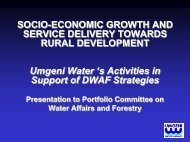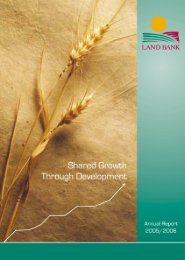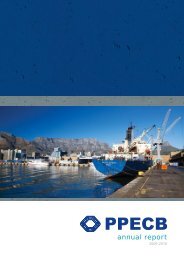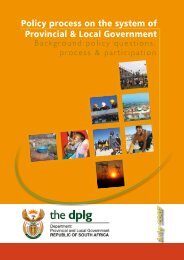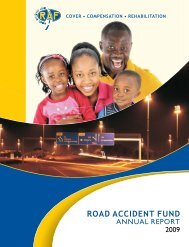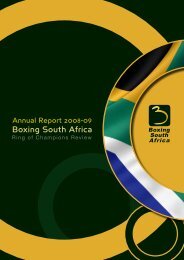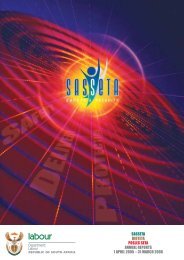Academy of Science South Africa 2005/6 Annual Report
Academy of Science South Africa 2005/6 Annual Report
Academy of Science South Africa 2005/6 Annual Report
- No tags were found...
You also want an ePaper? Increase the reach of your titles
YUMPU automatically turns print PDFs into web optimized ePapers that Google loves.
ASSAfExecutive summaryAn <strong>Academy</strong> <strong>of</strong> <strong>Science</strong> can serve as a unique andvaluable entity, in national systems <strong>of</strong> innovationand science based developmentThat all stakeholders in the<strong>South</strong> <strong>Africa</strong>n research enterpriseshould each in their own waysupport local/national researchjournals that actively seek to be<strong>of</strong> international quality and areindexed in an internationallyrecognised, bibliometricallyaccessible database, throughfollowing best-practice ineditorial discernment and peerreview, including adaptations.best <strong>of</strong> their international counterparts, and helps to establish a country’s reputation to attract investmentand foreign support.Recommendation No 1That all stakeholders in the <strong>South</strong> <strong>Africa</strong>n research enterprise should each in their own way supportlocal/national research journals that actively seek to be <strong>of</strong> international quality and are indexed in aninternationally recognised, bibliometrically accessible database, through following best-practice ineditorial discernment and peer review, including adaptationsthat address inherent problems and capitalise on technological innovations;that judiciously enrich content to promote coherence and value-adding functions;that provide the local scholarly community with opportunities for participating in the full range <strong>of</strong>scholarship-enhancing activities associated with the process <strong>of</strong> publishing original research outputs;that vigorously seek financial sustainability from multiple income streams; and that accept systemicpeer review and periodic audit which has a marked developmental focus.(The rationale for this broad recommendation is fully laid out in the chapters <strong>of</strong> this <strong>Report</strong>. In respect <strong>of</strong> financialviability <strong>of</strong> <strong>South</strong> <strong>Africa</strong> research journals, the general acceptance, in the special <strong>South</strong> <strong>Africa</strong>n context whereaccredited institutional publication outputs are subsidised, <strong>of</strong> a per-article institutional charge system (linked inthe case <strong>of</strong> higher education institutions to an agreed fraction <strong>of</strong> output publication subsidies, and in the case <strong>of</strong>other research-producing institutions to adapted budgeting practice), would produce marked benefits at minimumcost, and naturally lead to a more rapid expansion <strong>of</strong> the Open Access mode <strong>of</strong> online publication, on the basis <strong>of</strong>“institution pays (a little), the whole nation/world benefits (a lot)”. Key actors in bringing about the necessary policyand organisational frameworks would be research funders and supporters, including the Departments <strong>of</strong> Educationand <strong>Science</strong> and Technology, the NRF and the MRC, all working with the <strong>Academy</strong> <strong>of</strong> <strong>Science</strong> <strong>of</strong> <strong>South</strong> <strong>Africa</strong> indownstream implementation mode following the release and general discussion <strong>of</strong> this <strong>Report</strong>. Data presented inthis <strong>Report</strong> show that a fixed per-article institutional charge <strong>of</strong> R 1000, by an accredited journal that should be able92 Promoting Excellence in <strong>Science</strong> for Society


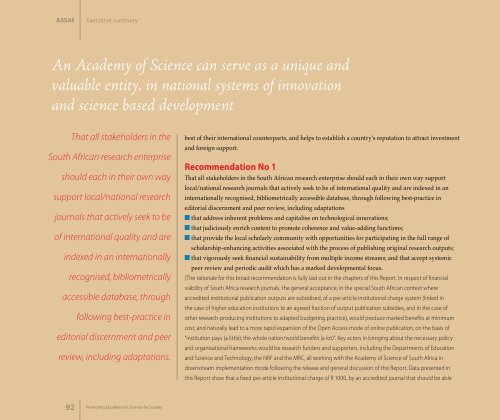
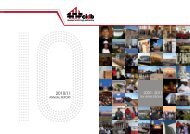
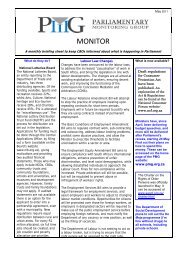
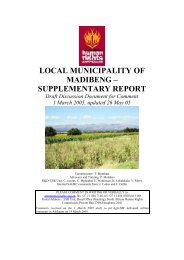
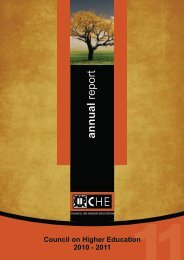
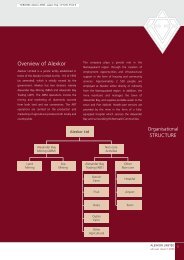
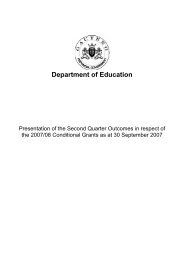
![National Research Foundation Annual Report 2008 / 2009 [Part 2]](https://img.yumpu.com/49774036/1/177x260/national-research-foundation-annual-report-2008-2009-part-2.jpg?quality=85)
